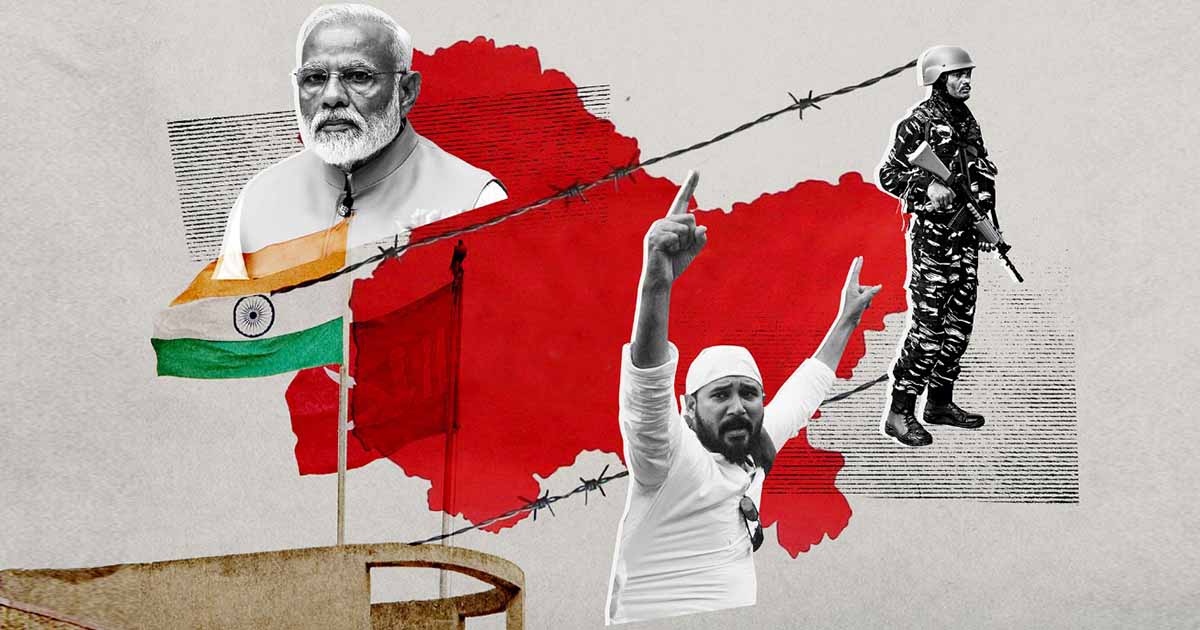
by Umar Moiz 20 July 2023
As the decades have passed since the accession of Kashmir to India, the region has unfortunately continued to face significant challenges and atrocities at the hands of Indian authorities. While diplomatic efforts and negotiations have been ongoing, a lasting resolution to the Kashmir dispute remains elusive, leading to a protracted conflict that has deeply affected the lives of Kashmiris.
Kashmir Accession Day, observed on the 19th of July each year, holds immense significance in the history of the Indian subcontinent. This day commemorates the critical event when the princely state of Jammu and Kashmir, after a prolonged period of deliberation and negotiation, chose to accede to the Dominion of India in 1947.
Kashmir Accession Day serves as a reminder of the challenges and complexities surrounding the Kashmir issue. The region’s political status remains a contentious topic, with both India and Pakistan claiming sovereignty over it. The day provides an opportunity for people in the region to reflect on their shared history, the sacrifices made by those who fought in the conflict, and the importance of finding a peaceful resolution to the Kashmir dispute.
Beyond its historical significance, Kashmir Accession Day also serves as a symbol of the diverse cultural fabric of India. The region’s rich heritage and traditions are celebrated on this day, promoting unity and diversity within the country.
One of the major issues plaguing the region is the persistent human rights violations committed by security forces in Indian-administered Kashmir. Reports of extrajudicial killings, enforced disappearances, arbitrary detentions, and torture have been documented by various human rights organizations. The Armed Forces Special Powers Act (AFSPA) gives Indian security forces broad powers, including immunity from prosecution, leading to concerns about impunity for their actions.
Moreover, the use of pellet guns to disperse crowds during protests has resulted in severe injuries and even blindness among civilians, including children. This has sparked widespread outrage and condemnation, both within India and internationally. Critics argue that such heavy-handed tactics further alienate the local population and deepen the cycle of violence and unrest in the region.
The situation in Kashmir has also been characterized by a prolonged internet blackout and restrictions on media freedoms, raising concerns about the suppression of information and the ability of Kashmiris to exercise their right to freedom of expression.
The demographic change in the region is another contentious issue. The Indian government’s decision to abrogate Article 370 of the Indian Constitution in August 2019, which granted special autonomy to Jammu and Kashmir, and the subsequent reorganization of the state into two union territories, has raised fears among Kashmiris about their cultural identity and political representation.
In addition to the internal complexities, the long-standing dispute between India and Pakistan over Kashmir has led to periodic border skirmishes and cross-border infiltration, exacerbating tensions and undermining efforts for peace and stability in the region.
On the economic front, the protracted conflict has hindered development and prosperity in Kashmir, resulting in a high unemployment rate and limited access to quality healthcare and education for many residents.
In light of these ongoing challenges and atrocities, Kashmir Accession Day serves as a stark reminder of the urgency to find a just and peaceful resolution to the Kashmir dispute. It calls for a renewed commitment from all parties involved to engage in constructive dialogue and seek a sustainable solution that respects the rights and aspirations of the Kashmiri people.
Ultimately, a lasting resolution can only be achieved through acknowledging and addressing the legitimate grievances and concerns of the people of Kashmir. This includes ensuring the protection of human rights, promoting freedom of expression and assembly, and creating an inclusive political process that allows for meaningful participation and representation of all stakeholders.
While the path to a lasting solution may be challenging, the international community must continue to support efforts to bring peace and stability to the region. Only through a genuine commitment to dialogue, respect for human rights, and an inclusive approach can Kashmir move towards a brighter future for its people.
